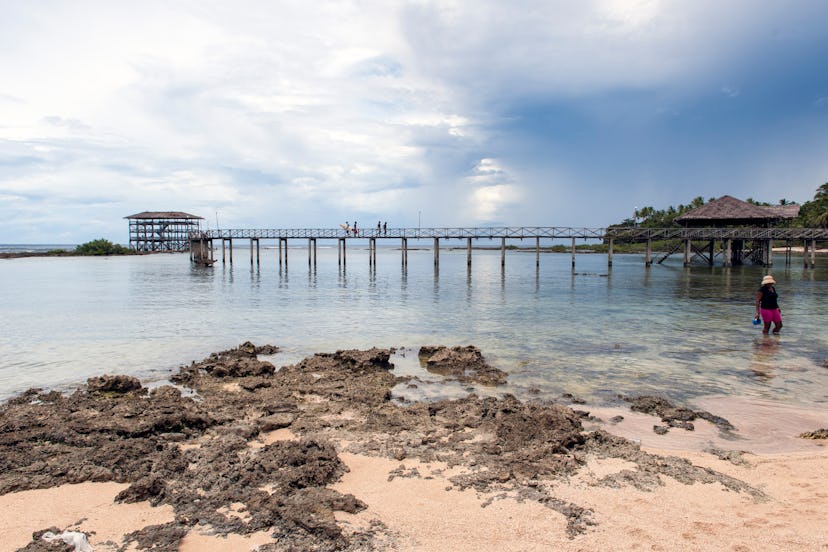Entitled Influencers Drive White Banana Beach Club Owner to Take a Stand on Behalf of Hotels Everywhere
"White Banana is not interested to 'collaborate' with self-proclaimed 'influencers.'"

A businessman in the Philippines has reached a boiling point over influencer culture. Gianlucca Casaccia, who manages and co-owns the White Banana Beach Club on Siargao island, has gone viral after calling out the entitlement he sees among influencers and wannabe influencers clogging his inbox with requests for free stays in exchange for Instagram posts.
Tired of receiving e-mails like these, Casaccia went onto Facebook, where he took a stand, writing, “We are receiving many messages regarding collaborations with influencers, Instagram influencers. We kindly would like to announce that White Banana is not interested to ‘collaborate’ with self-proclaimed ‘influencers.’ And we would like to suggest to try another way to eat, drink, or sleep for free. Or try to actually work.”
If his message sounds familiar, that might be because last year an owner of a hotel in Dublin, the White Moose Café, ended up becoming an Internet celebrity after he took a similar stand. Paul Stenson published an inquiry he received from a British blogger—which didn’t take long to go viral—and publicly shamed her, asking, “If I let you stay here in return for a feature in your video, who is going to pay the staff who look after you? Who is going to pay the housekeepers who clean your room? The waiters who serve you breakfast? The receptionist who checks you in? Who is going to pay for the light and heat you use during your stay? The laundering of your bed sheets? The water rates?” (She later defended herself, and the whole back-and-forth sparked a larger debate about the relationship between businesses, especially small businesses, and influencer culture.)
In the case of the White Banana Beach Club, though, some influencers are welcome. After Casaccia’s post amassed over 11,000 likes and countless comments, he clarified that he is still open to hosting “real influencers,” just not any with less than half a million followers. Apparently, he was most irked by the requests he received from microinfluencers with less than 2,000 followers. “We found this disrespectful,” he told The New York Times. “How can you help me if you are no one?”
While Casaccia’s issue with influencers is a lot more targeted than that of, say, the owner of the White Moose Café, the threshold of tolerance for influencer culture seems to be waning. Recently, that became clear when the residents of a photogenic pastel street in Paris, Rue Crémieux, decided to unite to ward off the herds of people coming to their doorsteps to amass content. The city of Paris is now considering introducing restrictions on when tourists can visit the street. Travel sure isn’t what it used to be.